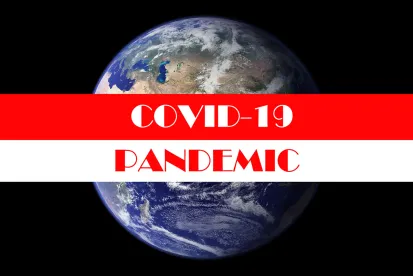Global supply chains have been greatly disrupted by the COVID-19 pandemic, sending companies scrambling to find both new sources of supplies and new customers for their products. But even as businesses struggle to find their footing in this new international marketplace, they also must be aware of US sanctions. Aggressive enforcement of US sanctions programs continues, even in the COVID-19 environment, and companies face increasing pressure to perform robust due diligence on their counterparties to reduce the risks of sanctions non-compliance.
US Sanctions Programs
-
Office of Foreign Assets Control (OFAC) oversees and enforces economic/trade sanctions
-
Sanctions can be comprehensive or selective, based on policy & security goals
-
Secondary sanctions target non-US persons
Sanction Parties Lists & Responsible Agency
-
Denied Persons List (Bureau of Industry and Security)
-
Entry List (Bureau of Industry and Security)
-
Debarred Persons List (Directorate of Defense Trade Controls)
-
Specially Designated Nationals and Blocked Persons List (OFAC)
Takeaways for 2019/Trends for 2020
-
Stronger existing sanctions against Venezuela, Cuba, Iran, North Korea, Russia
-
More aggressive enforcement
-
Expansive view of US jurisdiction over activities of non-US persons (including non-US subsidiaries, affiliates & portfolio companies)
-
Authorizing DOC to block transactions involving information/communications technology (ex. Huawai)
-
Greater clarity around OFAC’s compliance program expectations and Department of Justice treatment of corporate voluntary self-disclosures
Risk Factors for Enforcement Action
-
Responsibility for foreign affiliates’ actions
-
Ignoring red flags
-
Humanitarian assistance to sanctioned countries
DOJ Self-Disclosure Policy for Willful Violations
-
If party self-reports and cooperates, presumption is party won’t be prosecuted or fined, unless aggravating factors are present.
-
Such factors include transactions involving sensitive items or end-users that are of heightened concern; repeated violations; involvement of senior management; significant profit
-
Self-disclosure to other agencies will not qualify unless independently disclosed to the DOJ’s National Security Division
Best Practices
-
Have a comprehensive compliance policy/program, including ongoing risk assessments
-
Consider OFAC 50% rule in conducting due diligence. Sanctions apply to entities owned 50% or more by Specially Designated Nationals (SDNs)—either directly or indirectly
-
Become a reliable business advisor and partner. Understand the risk areas and the key reasons behind sanction programs
2019 OFAC Compliance Guidance: A Risk Based Approach
Management & Resources
-
Direct reporting lines to management
-
Periodic meetings with management-high risk cases
-
Human capital, expertise, technology
Effective Compliance Program & Controls
-
Onboarding: customers, intermediaries, supply chain, subs, target companies
-
Sanctions screening and desktop research
-
Enhanced due diligence – high risk
-
Transactional review
Ongoing Training & Monitoring
-
Communicate policies to employees
-
Automated monitoring system
-
Analyst review
-
Annual review – high risk cases
Policy Audit & Updates
-
Identify deficiencies
-
Remediate weaknesses
-
Sanctions advisories
-
Training functional groups on new methodologies
“The Brief” provides Compliance and Ethics Network members with a brief overview of highlights and key points covered in the monthly Legal Quick Hit. The full recording of this presentation can be found on the ACC website.




 />i
/>i

